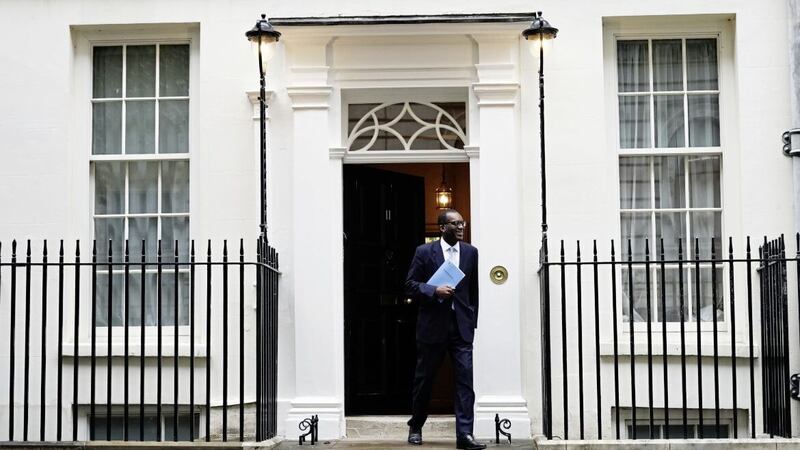THIS was a 'kitchen sink' budget according to the BBC's Faisal Islam, with the chancellor throwing almost everything into it, including a wide range of tax cuts and incentives. But there was little to explain how it would all be funded, with shadow chancellor Rachel Reeves perhaps explained it best when she said that "never before has government borrowed so much and explained so little".
On the taxation side, this was the biggest cut since 1972 comprising £45 billion of measures. And we shouldn't forget that all of these tax cuts were on top of the massive support committed to help businesses and households with energy costs.
But the cuts were remarkable not just in their value but also their breadth. It was something of a drive-by on the orders of Conservative Party 'high command' with an eye to a general election around the corner.
The Tory party, including the new PM and chancellor, were clearly uncomfortable with the UK being set for the highest tax burden in 70 years under their watch. Today was an attempt to change the pre-election narrative.
As such, most of the big-ticket items were on the menu, including corporation tax, income tax and national insurance contributions. The one thing perhaps missing was something of substance on VAT.
A significant part of the tax cuts was reversing Rishi Sunak's rises in national insurance contributions and corporation tax; an attempt to airbrush out a period in which the Conservative Party had been gaining a reputation for tax hikes. Not a good look for a small state, low tax party.
The proverbial 'rabbit out of the hat' was undoubtedly the abolition of the top rate of income tax (45 per cent for earnings over £150,000). This measure will have been of interest to a very small proportion of the Northern Ireland population (around 6,000 people). Of much more interest to people here is the cut in the basic rate of income tax to 19 per cent from April 2023. That cut was brought forward one-year.
If the abolition of the top rate of income tax was the rabbit out of the hat, the Stamp Duty Land Tax measures were perhaps the least surprising aspect of the budget, given how heavily they were flagged. They will be largely irrelevant to first time buyers in Northern Ireland, who were already benefiting from paying no stamp duty up to £300,000, which accounts for almost all first-time buyer property purchased here. The increase to £425,000 will be of much more relevant to first time buyers in the south east of England.
But other homebuyers in Northern Ireland will be much more interested in what the chancellor announced. With the nil-band rate increased to £250,000, this means that most home purchases in Northern Ireland will now be exempt from stamp duty, including second home purchases, and buy-to-let investments.
The chancellor talked about a 'new approach for a new era' but this mini budget smacked of old school trickledown economics, with the wealthy set to benefit significantly from his announcements. There was also a throw back to the 1980s, with investment zones looking much like a rebrand of enterprise zones with bells on.
While the chancellor is aiming for a trickledown benefit from his announcements, the problem is that confidence in the markets is trickling away and at risk of becoming a flow. Traditionally, budgets are accompanied by the OBR's assessment and forecasts. Instead, we'll have to wait until the end of the year to get these. This is likely to raise more concerns within financial markets about the sustainability of the UK's public finances. The reaction could be savage.
What we will now see is the Bank of England increasing interest rates even higher than would have been the case due to the effects of the measures on inflation. Will we see the BoE 'do a Fed' and deliver a 75bps /100bps hike in November like the US Federal Reserve recently did? This would effectively mean that the benefits of the measures announced today by the chancellor would be offset for many by the higher borrowing costs (e.g. mortgages) that would result from interest rate hikes.
It's hard to escape the fact that this is something of a Hail Mary budget, to coin a phrase from American football. Kwarteng is the quarterback who has thrown a desperation pass in the slim hope that the economy scores a touchdown by 2024. He may be lucky, but expectations are low.
:: Richard Ramsey is NI chief economist at Ulster Bank


